The Irish Water Spaniel, known as IWS for short, is the tallest of the Spaniels, and aptly named. It is hard to match this breed’s love of the water, and their success as a gun dog for waterfowl is a true testament to their prowess off-land. But as soon as they are off-duty, this good-natured dog does everything with an air of joy and is as friendly and loving as they come.
These hardworking dogs are a curly-coated bundle of energy and affection. Read on to learn more about the Irish Water Spaniel.
Description of the Irish Water Spaniel
The Irish Water Dog has a beautiful coat of tight, crisp curls that cover most of his body. His striking looks make for a beautiful addition to any family, but it is his loyalty, goofiness, and ability to get along with anyone that will make you really fall in love.
Their spaniel and sporting blood means that they have a strong and capable body. Used to working long days, the IWS has plenty of endurance and agility, ready to respond to any situation. They are tough and fearless workers that were bred for the hunt and still excel at it today.
Whether waterfowl or upland game, the Irish Water Dog is a sight to behold out in the field. Just be ready for a playful and down-right silly dog that loves to hang out and play with his family, as much as he likes to splash around in the water.
This dog’s long muzzle is streamlined for hunting, and is covered with a layer of smooth and dense fur. His tapered “rat tail” is the only area of his body not firmly wrapped is thick curls. The breed comes in varying shades of liver than can be tinted with a purplish hue.
Life Expectancy and Size
The Irish Water Spaniel often lives 12 – 13 years, but this breed can be plagued with health problems that may seriously shorten their lifespan. Working with a reputable breeder is an important part in being prepared for potential problems.
The IWS is a great size between a large and medium dog. Males are 22 – 24 inches tall, and weigh 55 – 68 pounds. Females stand 21 – 23 inches tall, and weigh 45 – 58 pounds.
Protective Ability
Like many other spaniels, the IWS is a good-natured and friendly to all. They are vigilant and loyal, often alerting their family to strangers, and make great watchdogs. But this breed’s natural desire to love everyone makes him or her a better welcoming committee than guard dog. They can be reserved with strangers but are often quick to warm up to them and drag them into a game of fetch.
Training
The Irish Water Spaniel is a smart dog that is eager to learn and always wants to do his best. Keeping training sessions short, interesting, and accessible for your dog will produce the best results.
The IWS loves treats, and using them as a training tool is a great way to make sessions more successful and fun for both of you. This breed is gentle and loving with his family, so positive rewards-based training is always the best path for these dogs.
Because of their innate desire to learn and succeed, the Irish Water Spaniel wants to try his best. If you dog is struggling with something it is more likely that the lesson you are trying to teach him is too big. Try breaking things down or going at it from a different angle.
Because of their hunting skills the IWS is a great choice for canine sports like agility and duck diving. Having your dog participate in sports is a great way to train them, burn of energy, and for you to bond with your dog. The Irish Water Spaniel can also make a great therapy dog as they are so sweet and perceptive.
Energy Level
This breed loves to play, and will make it as silly and fun as possible. They have boundless energy and are always up for a game or activity, especially if they get to do it with you. Whether this is fetch in the backyard, a nice long walk or jog, or canine sports, the Irish Water Spaniel will always be up to the challenge.
But after a long day, this breed loves to curl up next to his family. Just give him plenty of activity during the day and he will be more than happy to lay down next to you as you read or watch TV. Next to playing in the water and running around, the Irish Water Spaniel’s favorite thing to do is be with his family.
What Living with an Irish Water Spaniel is Like
This is a true hunting breed.
They are natural hard workers, and excel in the field. But at home they are great with the family and love kids. The Irish Water Spaniel can also do well with other pets, but it helps if they are introduced early.
The IWS is a great choice for hunters and those that lead an active lifestyle. Their natural love of being outside and on the move makes them excellent companions for those looking for a dog that can keep up with anything. More sedentary families may find this dog to be more than they can handle. The IWS needs to move and will become restless and destructive if not provide ample opportunities to exercise.
Care of the Irish Water Spaniel
The Irish Water Spaniel can be a happy dog almost anywhere. Just provide him with plenty of movement (make sure some of his playtime is in water!) and affection, and this breed will be your best four-legged companion.
Environmental Needs
With a thick, curled coat and densely built body, the Irish Water Spaniel is ready to take on all types of weather. From swimming across cold ponds to chasing after game in the summer heat, the IWS is adaptable
Exercise Needs
As a member of the sporting group, it comes as no surprise that the Irish Water Dog needs plenty of daily exercise. This not only keeps them fit and strong, but also keeps them happy and calm. You can fulfill your dog’s need to move through many activities, and a combination of different things will provide them with the mental stimulation they need.
Daily walks or jobs, playtime in the backyard, and canine sports are a great way to get in your dog’s exercise needs.
Shedding and Grooming
While the Irish Water Spaniel is hypoallergenic and a good choice for those who suffer from pet dandruff, they still require regular grooming. Starting young will teach your dog that grooming time is a good time, and make him more cooperative as he gets older. He may even actually love the attention.
A weekly brushing of this dog’s curly coat will help distribute its natural oils and remove any debris that has gotten caught. The coat should also be trimmed every few months to keep it from looking scraggly
This breed sheds very little.
Regular cleaning of the ears and trimming of the nails is important to keeping your IWS healthy.
Ideal Home Environment
The IWS is a good family dog, but may not be the best choice for first time pet owners. Their natural independence means they can benefit from those who know how to be consistent and patient with this breed. If you can provide this, your dog will be much happier and more successful. These dogs also need plenty of daily exercise and affection.
Early socialization is essential for your Irish Water Spaniel. They are a very sweet-tempered dog and exposing them to many different situations will help them from becoming shy. The IWS can be reserved around strangers, but quickly become friends with anyone who is friendly to them, or throws them a ball!
Health Concerns
While the IWS is often a healthy breed, they are prone to certain health problems. These include hip and elbow dysplasia, cataracts, allergies, and thyroid disease. Working closely wit your breeder can help prepare you for potential issues.
The Irish Water Spaniel is also allergic to sulfa antibiotics and the deworming medication Ivermectin. Make sure your vet is aware of these potentially life-threatening allergies.
Behavior Problems
This breed can have major separation anxiety. If they become lonely, they will likely begin to bark or whine, and maybe even begin destructive behaviors like chewing. They should not be left home alone for extended periods of time.
Their other big problem is chasing. Starting rewards-based training early can help them to listen more effectively while off leash. However, many Cavaliers still need to be on leash most of the time or remain in fenced yards.
Some of these dogs may become timid if they are not properly socialized, a side affect of their sweet temperaments.

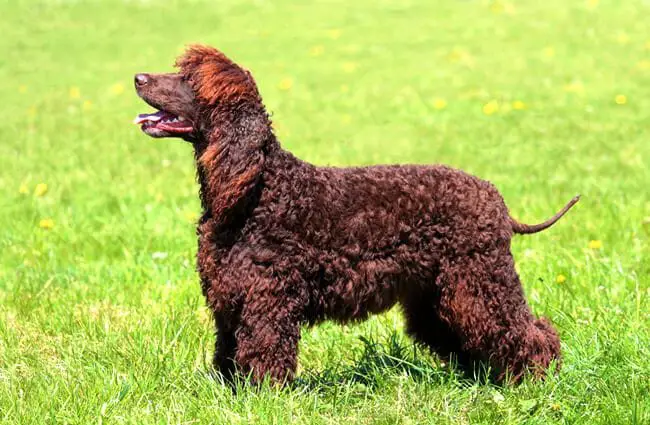
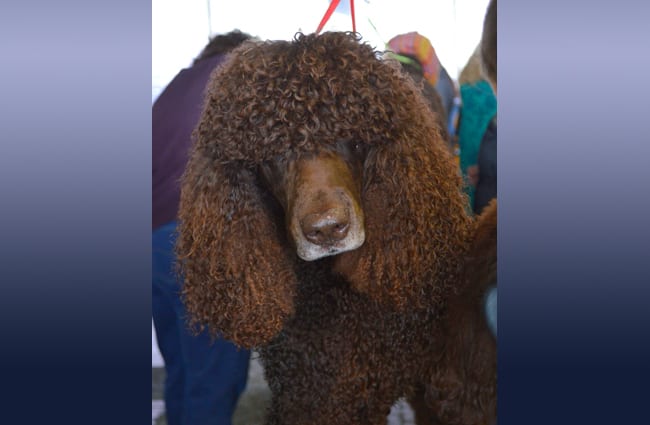
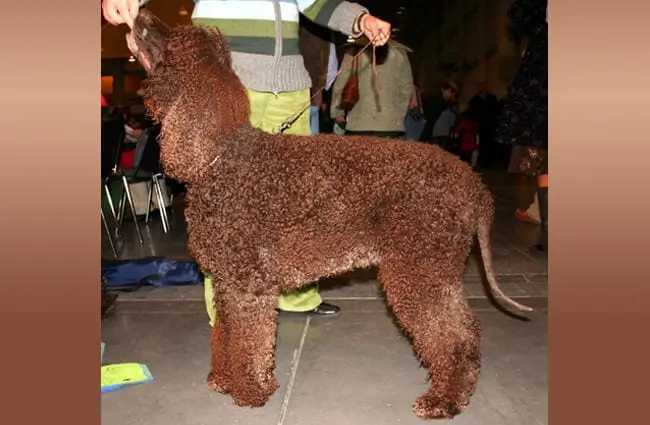
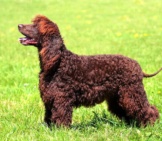

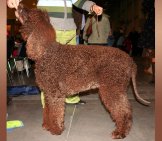








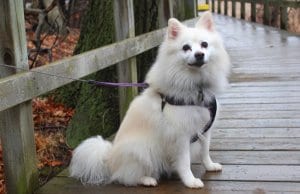

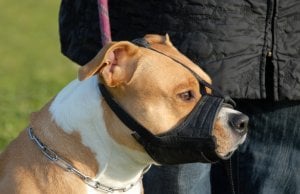


![Red Angus Closeup of a beautiful Red Angus cowPhoto by: U.S. Department of Agriculture [pubic domain]https://creativecommons.org/licenses/by/2.0/](https://animals.net/wp-content/uploads/2020/03/Red-Angus-4-100x75.jpg)

